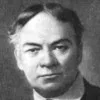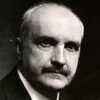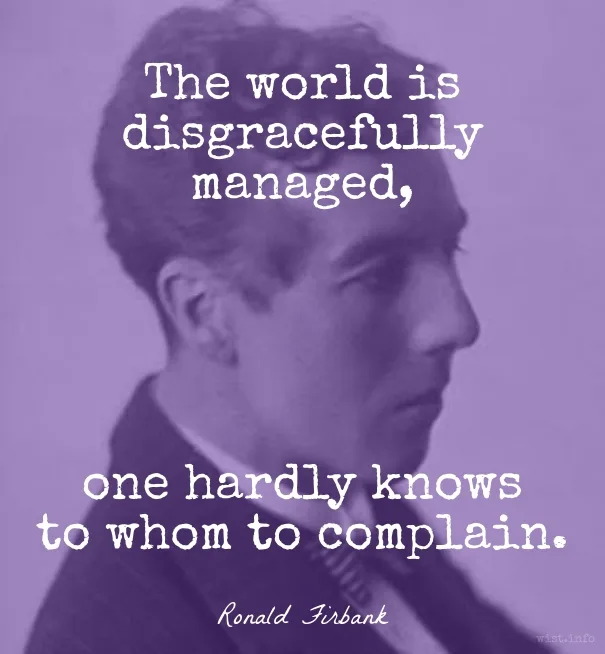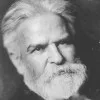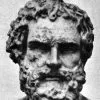I am persuaded that those who quite sincerely attribute their sorrows to their views about the universe are putting the cart before the horse: the truth is they are unhappy for some reasons of which they are not aware, and this unhappiness leads them to dwell upon the less agreeable characteristics of the world in which they live.
Bertrand Russell (1872-1970) English mathematician and philosopher
Conquest of Happiness, Part 1, ch. 2 “Byronic Unhappiness” (1930)
(Source)
Quotations about:
world
Note not all quotations have been tagged, so Search may find additional quotes on this topic.
I am not in charge of this House, and never will be. I have no say about who is in and who is out. I do not get to make the rules. Like Job, I was nowhere when God laid the foundations of the earth. I cannot bind the chains of the Pleiades or loose the cords of Orion. I do not even know when the mountain goats give birth, much less the ordinances of the heavens. I am a guest here, charged with serving other guests — even those who present themselves as my enemies. I am allowed to resist them, but as long as I trust in one God who made us all, I cannot act as if they are no kin to me. There is only one House. Human beings will either learn to live in it together or we will not survive to hear its sigh of relief when our numbered days are done.
Barbara Brown Taylor (b. 1951) American minister, academic, author
An Altar in the World, ch. 1 (2009)
(Source)
People encounter God under shady oak trees, on riverbanks, at the tops of mountains, and in long stretches of barren wilderness. God shows up in whirlwinds, starry skies, burning bushes, and perfect strangers. When people want to know more about God, the son of God tells them to pay attention to the lilies of the field and the birds of the air, to women kneading bread and workers lining up for their pay. Whoever wrote this stuff believed that people could learn as much about the ways of God from paying attention to the world as they could from paying attention to scripture. What is true is what happens, even if what happens is not always right. People can learn as much about the ways of God from business deals gone bad or sparrows falling to the ground as they can from reciting the books of the Bible in order. They can learn as much from a love affair or a wildflower as they can from knowing the Ten Commandments by heart.
Barbara Brown Taylor (b. 1951) American minister, academic, author
An Altar in the World, ch. 1 (2009)
(Source)
This world is but canvas to our imaginations.
Henry David Thoreau (1817-1862) American philosopher and writer
A Week on the Concord and Merrimack Rivers, “Wednesday” (1849)
(Source)
The whole wide world is a cathedral;
I stand inside, the air is calm,
And from afar at times there reaches
My ear the echo of a psalm.[Как будто внутренность собора —
Простор земли, и чрез окно
Далекий отголосок хора
Мне слышать иногда дано.]Boris Pasternak (1890-1960) Russian poet, novelist, and literary translator
“When It Clears Up [Когда разгуляется],” st. 6, Poems (1958) [tr. Lydia Pasternak Slater (1959)]
(Source)
The old folk of our grandfathers’ young days sang a song bearing exactly the same burden; and the young folk of to-day will drone out precisely similar nonsense for the aggravation of the next generation. “Oh, give me back the good old days of fifty years ago,” has been the cry ever since Adam’s fifty-first birthday. Take up the literature of 1835, and you will find the poets and novelists asking for the same impossible gift as did the German Minnesingers long before them and the old Norse Saga writers long before that. And for the same thing sighed the early prophets and the philosophers of ancient Greece. From all accounts, the world has been getting worse and worse ever since it was created. All I can say is that it must have been a remarkably delightful place when it was first opened to the public, for it is very pleasant even now if you only keep as much as possible in the sunshine and take the rain good-temperedly.
Jerome K. Jerome (1859-1927) English writer, humorist [Jerome Klapka Jerome]
Idle Thoughts of an Idle Fellow, “On Memory” (1886)
(Source)
First published in Home Chimes (1885-09-26).
This basic clash of ideas and wills is but one of the forces reshaping our globe — swept as it is by the tides of hope and fear, by crises in the headlines today that become mere footnotes tomorrow. Both the successes and the setbacks of the past year remain on our agenda of unfinished business. For every apparent blessing contains the seeds of danger — every area of trouble gives out a ray of hope — and the one unchangeable certainty is that nothing is certain or unchangeable.
For in and out, above, about, below,
‘Tis nothing but a Magic Shadow-show,
Play’d in a Box whose Candle is the Sun,
Round which we Phantom Figures come and go.Omar Khayyám (1048-1123) Persian poet, mathematician, philosopher, astronomer [عمر خیام]
Rubáiyát [رباعیات], Bod. # 108 [tr. FitzGerald, 1st ed. (1859), # 46]
(Source)
The fanúsi khiyál, was an Indian magic lantern still used in Fitzgerald's day, "the cylindrical Interior being painted with various Figures, and so lightly poised and ventilated as to revolve round the candle lighted within."
Alternate translations:Yon rolling heavens, at which we gaze bewildered,
Are but the image of a magic lanthorn;
The sun is the candle, the world the shade,
And we the images which flit therein.
[tr. Cowell (1858), # 28]We are no other than a moving row
Of visionary Shapes that come and go
Round with this Sun-illumin'd Lantern held
In Midnight by the Master of the Show.
[tr. FitzGerald, 2nd Ed (1868), # 73]We are no other than a moving row
Of Magic Shadow-shapes that come and go
Round with the Sun-illumin'd Lantern held
In Midnight by the Master of the Show.
[tr. FitzGerald, 3rd ed. (1872), # 68; and subsequent eds.]This vault of heaven under which we move in a vain shadow, may be likened unto a lantern; the sun is the focus, and we, like the figures, live there in amazement.
[tr. McCarthy (1879), # 230]These circling heavens, which make us so dismayed,
I liken to a lamp's revolving shade,
The sun the candlestick, the earth the shade,
And men the trembling forms thereon portrayed.
[tr. Whinfield (1882), # 165]This wheel of heaven, which makes us all afraid,
I liken to a lamp's revolving shade,
The sun the candlestick, the earth the shade,
And men the trembling forms thereon portrayed.
[tr. Whinfield (1883), # 310]A Turning Magic Lantern show this World,
Around the Sun as Candle swiftly whirled,
While mortals are but Phantom Figures traced
Upon the Shade, forever Onward hurled.
[tr. Garner (1887), 9.4]This vault of Heaven at which we gaze astounded,
May by a painted lantern be expounded:
The light's the Sun, the lantern is the World,
And We the figures whirling dazed around it!
[tr. M. K. (1888)]This vault of heaven, beneath which we stand bewildered,
we know to be a sort of magic. lantern:
know thou that the sun is the lamp flame and the universe is the lamp,
we are like figures that revolve in it.
[tr. Heron-Allen (1898), # 108]This heavenly dome, where we distracted dwell,
Is likest to a magic lantern made;
The sun the candle and the world the screen,
And we the images that flit and fade.
[tr. Cadell (1899), # 125]Passionate particles of dust and sun,
Run your brief race, nor ask why it is run --
We are but shadow-pictures, voices, dreams;
Perchance they make and break us -- just for fun.
[tr. Le Gallienne (1902)]This wheel of Heaven which we amazed discern.
Is like a Chinese lantern, as we learn;
The Sun the lamp, the World the lantern is.
And we like figures are that on it turn.
[tr. Thompson (1906), # 353]This vault of Heaven, 'neath which like fools we sit,
Is but a magic-lantern, dimly lit:
The sun the flame, the Universe the lamp,
We are the figures that revolve in it.
[tr. Talbot (1908), # 108]This revolving sphere in which we stand bewildered
Is like unto a Chinese lantern,
The sun, its lamp and its shade the world,
We, the figures moving within it.
[tr. Rosen (1928), # 207]Methinks this Wheel at which we gape and stare,
Is Chinese lantern -- like we buy at fair;
The lamp is Sun, and paper-shade the world,
And we the pictures whirling unaware.
[tr. Tirtha (1941), # 2.5]This vault underneath which we lie bemused
Is, so to speak, God's magic shadow show
With sun for lamp, the world as a wide screen
For countless lie-rehearsing silhouettes.
[tr. Graves & Ali-Shah (1967)]This Universal wheel, this merry-go-round
In our imagination we have found
The sun a flame, in the Cosmic lantern bound
We are mere ghosts, revolving, the flame surround.
[tr. Shahriari (1998), literal]In our imagination, the Cosmic Wheel
Will cause us pain and cause us heal,
We find our source give life and steal,
We are phantoms that think and feel.
[tr. Shahriari (1998), figurative]
Childhood is the world of miracle and wonder; as if creation rose, bathed in light out of the darkness, utterly new and fresh and astonishing. The end of childhood is when things cease to astonish us. When the world seems familiar, when one has got used to existence, one has become adult. The brave new world, the wonderland has grown trite and commonplace.
[L’enfance c’est le monde du miracle ou du merveilleux: c’est comme si la creation surgissait, lumineuse, de la nuit, toute neuve et toute fraîche, et tout étonnante. Il n’y a plus d’enfance à partir du moment où les choses ne sont plus étonnantes. Lorsque le monde vous semble «déja vu», lorsqu’on s’est habitué à l’existence, on devient adulte. Le monde de la féerie, la merveille neuve se fait banalité, cliché.]Eugène Ionesco (1912-1994) Romanian-French dramatist
Fragments of a Journal [Journal en Miettes], “The Crisis of Language” (1967) [tr. Stewart (1968)]
(Source)
The world is a library of strange and wonderful books, and sometimes we just need to go prowling through the stacks.
Michael Dirda (b. 1948) American book critic
Book by Book: Notes on Reading and Life, ch. 8 (2005)
(Source)
Still, what I want in my life
is to be willing
to be dazzled —
to cast aside the weight of facts
and maybe even
to float a little
above this difficult world.
LEAR: When we are born, we cry that we are come
To this great stage of fools.William Shakespeare (1564-1616) English dramatist and poet
King Lear, Act 4, sc. 6, l. 200ff (4.6.200-201) (1606)
(Source)
That the world can be improved and yet must be celebrated as it is are contradictions. The beginning of maturity may be the recognition that both are true.
William M. Stott (b. 1940) American diplomat, academic in American Studies and English, author
Documentary Expression and Thirties America, ch. 15 (1973)
(Source)
Closing words of the book.
I have heard people say we should be strong so that if there is another war we can win it, then show the world the right way to live afterward. This is old stuff, and it is poppycock. Our behavior hardly qualifies us as world leaders. Ours is one of the most conservative governments in the world today, and one of the most bumbling. We have more provincialism and bigotry and superstition and prejudice per square mile than almost any other nation. We like to think of ourselves as a young, progressive country, but, while we do have energy, we have become smug and self-satisfied.
Sometimes it is good for us to have troubles and hardships, for they often call us back to our own hearts. Once there, we know ourselves to be strangers in this world, and we know that we may not believe in anything that it has to offer.
[Bonum nobis est, quod aliquando habeamus aliquas gravitates et contrarietates, quia sæpe hominem ad cor revocant, quatenus se in exilio esse cognoscat, nec spem suam in aliqua mundi re ponat.]
Thomas à Kempis (c. 1380-1471) German-Dutch priest, author
The Imitation of Christ [De Imitatione Christi], Book 1, ch. 12, v. 1 (1.12.1) (c. 1418-27) [tr. Creasy (1989)]
(Source)
See Psalm 119:71.
(Source (Latin)). Alternate translations:It is good that we have sometime griefs and adversities, for they drive a man to behold himself, and to see that he is here but as in an exile, and be learned thereby to know that he ought not to put his trust in any worldly thing.
[tr. Whitford/Raynal (1530/1871)]It is good that we sometimes have griefs and adversities, for they drive a man to behold himself and to see that he is but here as in exile, and to learn thereby that he ought not put his trust in any worldly thing.
[tr. Whitford/Gardiner (1530/1955)]It is good for us sometimes to suffer affliction and contradiction, because they oftentimes call a man home unto himselfe. They make a man to know that he liveth here but in banishment, and that he must not trust to any thing in this world.
[tr. Page (1639), x.12.1-2]It is good for me that I have been in Trouble, says David. Nor is it David's Case alone, for many Men have reason to bless that Providence which sends Crosses and Calamities upon them. These bring Man's Thoughts home, put him upon Reflection, and help him to understand himself and his Condition. They shew him, that he is in a State of Exile and Pilgrimage, and forbid him to set up his Hope and Rest, in a strange Country, where he is no better than a Sojourner.
[tr. Stanhope (1696; 1706 ed.)]It is good for man to suffer the adversity of this earthly life; for it brings him back to the sacred retirement of the heart, where only he finds, that he is an exile from his native home, and ought not to place his trust in any worldly enjoyment.
[tr. Payne (1803)]It is good that we have sometimes some troubles and crosses; for they often make a man enter into himself, and consider that he is here in banishment, and ought not to place his trust in any worldly thing.
[ed. Parker (1841)]It is good for us that we sometimes suffer contrarieties and vexations; for they call a man back to the retirement of his heart, where only he finds, that, as he is an exile from his native home, he ought not to place his trust in any worldly enjoyment.
[tr. Dibdin (1851)]It is good for us to have sometimes troubles and adversities, for they make a man enter into himself, that he may know that he is in exile, and may not place his hopes in anything of the world.
[ed. Bagster (1860)]It is good for us that we sometimes have sorrows and adversities, for they often make a man lay to heart that he is only a stranger and sojourner, and may not put his trust in any worldly thing.
[tr. Benham (1874)]It is good that we have sometimes troubles and crosses; for they often make a man enter into himself, and consider that he is here in banishment, and ought not to place his trust in any worldly thing.
[tr. Anon. (1901)]It is good for us to have trials and troubles at times, for they often remind us that we are on probation and ought not to hope in any worldly thing.
[tr. Croft/Bolton (1940)]It is good for us at times to have some burdens and adversities, for they often call a man back to his heart, that he may recognise himself to be in exile, and not fix his hope on anything earthly.
[tr. Daplyn (1952)]It is good for us to encounter troubles and adversities from time to time, for trouble often compels a man to search his own heart. It reminds him that he is an exile here, and that he can put his trust in nothing in this world.
[tr. Sherley-Price (1952)]It's good for you to go through difficult times now and again, and to have your will thwarted; the effect is often to make a man think -- make him realize that he is living in exile, and it is no use relying upon any earthly support.
[tr. Knox-Oakley (1959)]It is a good thing that we have to face difficulties and opposition from time to time, because this brings us back to ourselves; it makes us realize that we are exiles and cannot pin our hopes on anything in this world.
[tr. Knott (1962)]It is good for us now and then to experience difficulties and adversity; for they make man realize again that he is an exile and should not put his hopes on any worldly thing.
[tr. Rooney (1979)]
The world is not to be confined (as hitherto) within the straits of the intellect, but the intellect is to be enlarged to receive the image of the world, such as it is.
[Neque enim arctandus est mundus ad angustias intellectus (quod adhue factum est), sed expandendus intellectus et laxandus ad mundi imaginem recipiendam, qualis invenitur.]
Francis Bacon (1561-1626) English philosopher, scientist, author, statesman
Instauratio Magna [The Great Instauration], Part 3 “Parsceve ad Historiam Naturalem [Preparatory for Natural History],” “Aphorisms on the Composition of the Primary History,” # 4 (1622) [tr. Oxenford (1857)]
(Source)
(Source (Latin)). Alternate translations:For the World ought not to be tyed into the straightness of the understanding (which hitherto hath been done) but our Intellect should be stretched and widened, so as to be capable of the Image of the World, such as we find it.
[Source (1670)]For the world is not to be narrowed till it will go into the understanding (which has been done hitherto), but the understanding to be expanded and opened till it can take in the image of the world, as it is in fact.
[tr. Spedding/Ellis/Heath (c. 1900)]
The longer I live, the more I am inclined to the belief that this earth is used by other planets as a lunatic asylum.
George Bernard Shaw (1856-1950) British playwright and critic
(Attributed)
Attributed to Shaw by Judge Henry Neil in a letter (6 Sep 1919) to the Dublin Weekly Freeman. Neil said Shaw had made the statement in correspondence over pension laws for widows. While Voltaire (and others earlier) employed similar metaphors for Earth as a madhouse, this particular phrasing appears to be Shaw's.
More discussion of the quotation's origins here: This Earth Is Used By Other Planets as a Lunatic Asylum – Quote Investigator.
Few people can say of themselves that they are free of the belief that this world which they see around them is in reality the work of their own imagination. Are we pleased with it, proud of it, then?
Isak Dinesen (1885-1962) Danish writer [pseud. of Karen Christence, Countess Blixen]
“The Deluge at Norderney,” Seven Gothic Tales [Kasparson] (1934)
(Source)
To suppose that God Almighty has confined his goodness to this world, to the exclusion of all others, is much similar to the idle fancies of some individuals in this world, that they, and those of their communion or faith, are the favorites of heaven exclusively; but these are narrow and bigoted conceptions, which are degrading to a rational nature, and utterly unworthy of God, of whom we should form the most exalted ideas.
Ethan Allen (1738-1789) American businessman, land speculator, revolutionary, writer
Reason, the Only Oracle of Man, ch. 2 sec. 7 (1782)
(Source)
The world is not what anyone wished for, but it’s what everyone wished for.
James Richardson (b. 1950) American poet
“Vectors: 56 Aphorisms and Ten-second Essays,” Michigan Quarterly Review, #11 (Spring 1999)
(Source)
I know that the Bible is a special kind of book, but I find it as seductive as any other. If I am not careful, I can begin to mistake the words on the page for the realities they describe. I can begin to love the dried ink marks on the page more than I love the encounters that gave rise to them. If I am not careful, I can decide that I am really much happier reading my Bible than I am entering into what God is doing in my own time and place, since shutting the book to go outside will involve the very great risk of taking part in stories that are still taking shape. Neither I nor anyone else knows how these stories will turn out, since at this point they involve more blood than ink. The whole purpose of the Bible, it seems to me, is to convince people to set the written word down in order to become living words in the world for God’s sake. For me, this willing conversion of ink back to blood is the full substance of faith.
No, your seriously steeped-in-madness dabbler in the esoteric sciences usually finds themself taxed with a rag-tag collection of hangers-on, typically consisting of minions, constructs, adventurers, and those unique, unclassifiable, individuals whose raison d’être appears to be to remind us of what a strange world it is.
What if people were invited to come tell what they already know of God instead of to learn what they are supposed to believe? What if they were blessed for what they are doing in the world instead of chastened for not doing more at church? What if church felt more like a way station than a destination? What if the church’s job were to move people out the door instead of trying to keep them in, by convincing them that God needed them more in the world than in the church?
Barbara Brown Taylor (b. 1951) American minister, academic, author
Leaving Church: A Memoir of Faith, Part 3 (2006)
(Source)
For the world, I count it not an Inne, but an Hospitall, and a place, not to live, but to die in.
Thomas Browne (1605-1682) English physician and author
Religio Medici, Part 2, sec. 11 (1643)
(Source)
Here’s a comforting thought for you, Peter. However long you may live, the world will never lose its ability to surprise you with its beauty.
A lot of the arguments about religion going on at the moment spring from a rather inept understanding of religious truth. Our notion changed during the early modern period when we became convinced that the only path to any kind of truth was reason. That works beautifully for science but doesn’t work so well for the humanities. Religion is really an art form and a struggle to find value and meaning amid the ghastly tragedy of human life.
Karen Armstrong (b. 1944) British author, comparative religion scholar
“The Reason of Faith,” Interview with Michael Brunton, Ode (Sep-Oct 2009)
(Source)
Christ saw much in this world to weep over, and much to pray over: but he saw nothing in it to look upon with contempt.
ANGEL: Nothing in the world is the way it ought to be. It’s harsh, and cruel. But that’s why there’s us, champions. Doesn’t matter where we come from, what we’ve done or suffered, or even if we make a difference. We live as though the world is as it should be, to show it what it can be.
What makes earth feel like Hell is our expectation that it should feel like Heaven.
The world is not respectable; it is mortal, tormented, confused, deluded forever; but it is shot through with beauty, with love, with glints of courage and laughter; and in these, the spirit blooms timidly, and struggles to be a light amid the thorns.
George Santayana (1863-1952) Spanish-American poet and philosopher [Jorge Agustín Nicolás Ruíz de Santayana y Borrás]
Platonism and the Spiritual Life (1927)
(Source)
A person can go on living fairly well, seem to be a human being, be occupied with temporal matters, marry, have children, be honored and esteemed — and it may not be detected that in a deeper sense this person lacks a self. Such things do not create much of a stir in the world, for a self is the last thing the world cares about and the most dangerous thing of all for a person to show signs of having. The greatest hazard of all, losing one’s self, can occur very quietly in the world, as if it were nothing at all. No other loss can occur so quietly; any other loss — an arm, a leg, five dollars, a wife, etc. — is sure to be noticed.
Søren Kierkegaard (1813-1855) Danish philosopher, theologian
The Sickness unto Death, “The Forms of This Sickness, i.e., of Despair,” 1.a.1 (1849)Alt. trans.:
- "A man may nevertheless be perfectly well able to live on, to be a mn, a it seems, to occupy himself with temporal things, get married, beget children, win honor and esteem -- and perhaps no one notices that in a deeper sense he lacks a self. About such a thing as that not much fuss made in the world for a self is the thing the world is least apt to inquire about, and the thing of all things the most dangerous for a man to let people notice that he has it. The greatest danger, that of losing one's own self, may pass off as quietly as if it were nothing; every other loss, that of an arm, a leg, five dollars, a wife, etc., is sure to be noticed." (Source)
- "But to become fantastic in this way, and therefore be in despair, although usually obvious, does not mean that a person may not continue living a fairly good life, to all appearances be someone, employed with temporal matters, get married, beget children, be honored and esteemed -- and one may fail to notice that in a deeper sense he lacks a self. Such things cause little stir in the world; for in the world a self is what one least asks after, and the thing it is the most dangerous of all to show signs of having. The biggest danger, that of losing oneself, can pass off in the world as quietly as if it were nothing; every other loss, an arm, a leg, five dollars, a wife, etc. is bound to be noticed." (Source)
Love would put a new face on this weary old world in which we dwell as pagans and enemies too long.
Ralph Waldo Emerson (1803-1882) American essayist, lecturer, poet
“Man the Reformer,” lecture, Boston (1841-01-25)
(Source)
I don’t think the boy of lively mind is hurt much by going to college. If he encounters mainly jackasses, then he learns the useful lesson that this is a jackass world.
H. L. Mencken (1880-1956) American writer and journalist [Henry Lewis Mencken]
“Editorial,” The American Mercury (April 1926)
(Source)
Reprinted in Prejudices: Sixth Series (1927).
Life is not made up of dramatic incidents — even the life of a nation. It is made up of slowly evolving events and processes, which newspapers, by a score of different forms of emphasis, can reasonably attempt to explore from day to day. But television news jerks from incident to incident. For the real world of patient and familiar arrangements, it substitutes an unreal world of constant activity, and the effect is already apparent in the way which the world behaves. It is almost impossible, these days, to consider any problem or any event except as a crisis; and, by this very way of looking at it, it in fact becomes a crisis.
A talent forms itself in solitude,
A character amid the stream of life.[Es bildet ein Talent sich in der Stille,
Sich ein Charakter in dem Strom der Welt.]Johann Wolfgang von Goethe (1749-1832) German poet, statesman, scientist
Torquato Tasso, Act 1, sc. 2, ll. 304-305 [Leonora] (1790) [tr. Ryder (1993)]
(Source)
(Source (German)). Alternate translations:
- "A talent doth in stillness form itself -- / A character on life's unquiet stream." [tr. Des Voeux (1827)]
- "Talents are nurtured best in solitude, -- / A character on life's tempestuous sea." [tr. Swanwick (1843)]
- "Man's talent ripens in tranquility, / His character in battling with the world." [tr. Cartwright (1861)]
- "A talent in tranquility is formed, / A character in the turbulence of affairs." [tr. Hamburger (20th C)]
- "Talent develops in quiet places, / Character in the full current of human life."
- Talents are best nurtured in solitude; / Character is best formed in the stormy billows of the world.
- "Genius is formed in quiet, / Character in the stream of human life."
The world is not always a kind place. That’s something all children learn for themselves, whether we want them to or not, but it’s something they really need our help to understand.
The world either breaks or hardens the heart.
[En vivant et en voyant les hommes, il faut que le cœur se briese ou se bronze.]
Nicolas Chamfort (1741-1794) French writer, epigrammist (b. Nicolas-Sébastien Roch)
Products of Perfected Civilization [Produits de la Civilisation Perfectionnée], Part 2 “Characters and Anecdotes [Caractères et Anecdotes],” ch. 3 (frag. 771) (1795) [tr. Finod (1880)]
(Source)
(Source (French))
Attributed by Chamfort as a statement in a philosophical debate, made by M. D---. Finod's translation is very much a paraphrase, as is:Contact with the world either breaks or hardens the heart.
[ed. Ballou (1882)]
More literal translations:Living among men and observing them, the heart must either break or turn to bronze.
[tr. Merwin (1969)]In living and in seeing men, the heart must break or be bronzed.
[Source]
Though attributed by Chamfort to "M. D----," he also used the phrase himself, and it is usually attributed to him. Toward the end of his life, he wrote:Je m'en vais enfin, de ce monde où il faut que le cœur se briese ou se bronze.
[I am leaving at last from this world where the heart must break or become bronze.]
It remains true, however, that an inconveniently placed railing or sharp corner will not remove itself from the path of a drunkard, even if that drunkard is unaware of the obstacles on the path he has set for himself; in other words, no matter to what degree we are oblivious to the world, it makes its own choices as to how oblivious it will be to us.
DRUMLIN: I know you must think this is all very unfair. Maybe that’s an understatement. What you don’t know is I agree. I wish the world was a place where fair was the bottom line, where the kind of idealism you showed at the hearing was rewarded, not taken advantage of. Unfortunately, we don’t live in that world.
ARROWAY: Funny, I’ve always believed that the world is what we make of it.
Carl Sagan (1934-1996) American scientist and writer
Contact, novel (1997) [film screenplay by J. Hart and M. Goldenberg]
(Source)
The world’s an Inn; and I her guest.
I eat; I drink; I take my rest.
My hostess, nature, does deny me
Nothing, wherewith she can supply me;
Where, having stayed a while, I pay
Her lavish bills, and go my way.
The world is disgracefully managed, one hardly knows to whom to complain.
“Do you think the world is growing worse?” Mr. Hennessy asked.
“I do not,” said Mr. Dooley.
“Do you think it’s growing better?”
“No,” said Mr. Dooley. “If it’s doing anything, it’s just turning around as usual.”
Do not imagine that the knowledge, which I so much recommend to you, is confined to books, pleasing, useful, and necessary as that knowledge is: but I comprehend in it the great knowledge of the world, still more necessary than that of books. In truth, they assist one another reciprocally; and no man will have either perfectly, who has not both. The knowledge of the world is only to be acquired in the world and not in a closet. Books alone will never teach it you; but they will suggest many things to your observation, which might, otherwise escape you; and your own observations upon mankind, when compared with those which you will find in books, will help you to fix the true point.
Lord Chesterfield (1694-1773) English statesman, wit [Philip Dormer Stanhope]
Letter to his son, #112 (4 Oct 1746)
(Source)
All things pass in time. We are far less significant than we imagine ourselves to be. All that we are, all that we have wrought, is but a shadow, no matter how durable it may seem. One day, when the last man has breathed his last breath, the sun will shine, the mountains will stand, the rain will fall, the streams will whisper — and they will not miss him.
I look forward to an America which commands respect throughout the world not only for its strength but for its civilization as well. And I look forward to a world which will be safe not only for democracy and diversity but also for personal distinction.
Let the great book of the world be your principal study.
Lord Chesterfield (1694-1773) English statesman, wit [Philip Dormer Stanhope]
Letter to his son, #249 (7 Apr 1751)
(Source)
Never give children a chance of imagining that anything exists in isolation. Make it plain from the very beginning that all living is relationship. Show them relationships in the woods, in the fields, in the ponds and streams, in the village and in the country around it. Rub it in.
An authentic faith — which is never comfortable or completely personal — always involves a deep desire to change the world, to transmit values, to leave this earth somehow better that we found it.
Francis I (b. 1936) Argentinian Catholic Pope (2013- ) [b. Jorge Mario Bergoglio]
Evangelii Gaudium, sec. 183 (24 Nov 2013)
(Source)
Don’t believe the world owes you a living. The world owes you nothing. It was here first.
Robert Jones Burdette (1844-1914) American humorist, lecturer, clergyman
“Advice to Young Men,” lecture (1833)
Quoted in the Duluth Evening Observer (1 Feb 1883). Frequently misattributed to Mark Twain. See here for more information.
He who imagines he can do without the world, deceives himself much: but he who fancies the world cannot do without him, is under a far greater deception.
[Celui qui croit pouvoir trouver en soi-même de quoi se passer de tout le monde se trompe fort; mais celui qui croit qu’on ne peut se passer de lui se trompe encore davantage.]François VI, duc de La Rochefoucauld (1613-1680) French epigrammatist, memoirist, noble
Réflexions ou sentences et maximes morales [Reflections; or Sentences and Moral Maxims], ¶201 (1665-1678) [ed. Carvill (1835), ¶81]
(Source)
Appeared in the 1st ed. (1665). In manuscript, the first part "Celui qui croit pouvoir trouver en soi-même de quoi se passer de tout le monde" reads "Celui qui croit pouvoir se passer de tout le monde" ("He who believes that he can find in himself enough to do without everyone" reads "He who believes he can do without everyone.").
(Source (French)). Alternate translations:He that fansies such a sufficiency in himself, that he can live without all the World, is mightily mistaken; but he that imagines himself so necessary, that other people cannot live without him, is a great deal more mistaken.
[tr. Stanhope (1694), ¶202]He who imagines he can do without the world deceives himself much; but he who fancies the world cannot do without him is still more mistaken.
[pub. Donaldson (1783), ¶93; ed. Lepoittevin-Lacroix (1797), ¶192]He who thinks he can find in himself the means of doing without others is much mistaken; but he who thinks that others cannot do without him is still more mistaken.
[ed. Gowens (1851), ¶210]He who thinks he has the power to content the world greatly deceives himself, but he who thinks that the world cannot be content with him deceives himself yet more.
[tr. Bund/Friswell (1871), ¶201]The man who thinks he can do without the world errs; but the man who thinks the world can [sic] do without him is in still greater error.
[tr. Heard (1917), ¶206]It is a great mistake for a man to suppose that he can dispense with the world; but it is a much greater one to suppose that the world cannot dispense with him.
[tr. Stevens (1939), ¶201]A man who believes that his inner resources are such that he can dispense with his fellow-men is committing a serious mistake: it is not, however, so serious as that of the man who believes himself indispensable to others.
[tr. FitzGibbon (1957), ¶201]The man who thinks he can do without the world is indeed mistaken; but the man who thinks the world cannot do without him is mistaken even worse.
[tr. Kronenberger (1959), ¶201]The man who thinks he can find enough in himself to be able to dispense with everybody else makes a great mistake, but the man who thinks he is indispensable to others makes an even greater.
[tr. Tancock (1959), ¶201]He who believes that he can make do without any one else in the world, is very mistaken; but he who believes that nobody in the world could make do without him, deceives himself still more greatly.
[tr. Whichello (2016) ¶201]
We hope that the world will not narrow into a neighborhood before it has broadened into a brotherhood.
Lyndon B. Johnson (1908-1973) American politician, educator, US President (1963-69)
Speech (1963-12-17), Pageant of Peace Ceremonies, Washington, D.C.
(Source)
Johnson used this phrase many times in the early '60s to refer to how, as the world "shrank" through advances in travel (including for weapons), it had not resolved the ongoing problems within humanity, only brought them closer. Other examples:We live in a world which has narrowed into a neighborhood before it broadened into a brotherhood.
[Reported (1961-08-01)]The world has narrowed to a neighborhood before it has broadened to brotherhood.
[Speech, New York City (1963-12-17)]
See also King (1954).
There must be either a predestined Necessity and inviolable plan, or a gracious Providence, or a chaos without design or director. If then there be an inevitable Necessity, why kick against the pricks? If a Providence that is ready to be gracious, render thyself worthy of divine succour. But if a chaos without guide, congratulate thyself that amid such a surging sea thou hast a guiding Reason.
[Ἤτοι ἀνάγκη εἱμαρμένης καὶ ἀπαράβατος τάξις ἢ πρόνοια ἱλάσιμος ἢ φυρμὸς εἰκαιότητος ἀπροστάτητος. εἰ μὲν οὖν ἀπαράβατος ἀνάγκη, τί ἀντιτείνεις; εἰ δὲ πρόνοια ἐπιδεχομένη τὸ ἱλάσκεσθαι, ἄξιον σαυτὸν ποίησον τῆς ἐκ τοῦ θείου βοηθείας. εἰ δὲ φυρμὸς ἀνηγεμόνευτος, ἀσμένιζε ὅτι ἐν τοιούτῳ κλύδωνι αὐτὸς ἔχεις ἐν σαυτῷ τινα νοῦν ἡγεμονικόν.]
Marcus Aurelius (AD 121-180) Roman emperor (161-180), Stoic philosopher
Meditations, Book 12, #14 [tr. Haines (1916)]
(Source)
Original Greek. Alternate translations:Either fate, (and that either an absolute necessity, and unavoidable decree; or a placable and flexible Providence) or all is a mere casual confusion, void of all order and government. If an absolute and unavoidable necessity, why doest thou resist? If a placable and exorable Providence, make thyself worthy of the divine help and assistance. If all be a mere confusion without any moderator, or governor, then hast thou reason to congratulate thyself; that in such a general flood of confusion thou thyself hast obtained a reasonable faculty, whereby thou mayest govern thine own life and actions.
[tr. Casaubon (1634), #11]Either the Order of Things are fixed by irrevocable Fate, or Providence may be worked into Compassion, or else the World Floats at Raondom without any Steerage. Now if nature lies under immovable Necessity, to what purpose should you struggle against it? If the favor of Providence is to be gained, qualify your self for the Divine Assistance: But if Chance, and Confusion carry it, and no body sits at the Helm; be you contented and Ride out the Storm patiently, for you have a Governor within you , though the World has none.
[tr. Collier (1701)]Either there is a fatal necessity and invincible order, or a kind providence, or a confusion without a purpose and without a director. If then there is an invincible necessity, why dost thou resist? But if there is a providence which allows itself to be propitiated, make thyself worthy of the help of the divinity. But if there is a confusion without a governor, be content that in such a tempest thou hast in thyself a certain ruling intelligence.
[tr. Long (1862)]Either the order of things is fixed by irrevocable fate, or providence may be worked into compassion, or else the world floats at random without any steerage. Now if nature lies under an immovable necessity, to what purpose should you struggle against it? If the favor of providence is to be gained, qualify yourself for divine assistance; but if chance and confusion prevail, be you contented that in such a storm you have a governing intelligence within you.
[tr. Zimmern (1887)]Either the Necessity of destiny and an order none may transgress, or Providence that hears intercession, or an ungoverned welter without a purpose. If then a Necessity which none may transgress, why do you resist? If a Providence admitting intercession, make yourself worthy of assistance from the Godhead. If an undirected welter, be glad that in so great a flood of waves you have yourself within you a directing mind.
[tr. Farquharson (1944)]Fatal necessity, and inescapable order. Or benevolent Providence. Or confusion -- random and undirected. If it's an inescapable necessity, why resist it? If it's Providence, admits of being worshipped, then try to be worthy of God's aid. If it's confusion and anarchy, then be grateful that on this raging sea you have a mind to guide you.
[tr. Hays (2003)]Either predetermined necessity and unalterable cosmic order, or a gracious providence, or a chaotic ungoverned mixture. If a predetermined necessity, why do you resist? If it is a gracious Providence that can hear our prayers, then make yourself worthy of divine assistance. If a chaotic ungoverned mixture, be satisfied that in the midst of this storm, you have within yourself a mind whose nature it is to govern and command.
[tr. Needleman/Piazza (2008)]
To a wise man, the whole earth is open; for the native land of a good soul is the whole earth.
[Ἀνδρὶ σοφῶι πᾶσα γῆ βατή· ψυχῆς γὰρ ἀγαθῆς πατρὶς ὁ ξύμπας κόσμος.]
Democritus (c. 460 BC - c. 370 BC) Greek philosopher
Frag. 247 (Diels) [tr. Freeman (1948)]
(Source)
Diels citation: "247. (168 N.)"; collected in Joannes Stobaeus (Stobaios) Anthologium III, 40, 7. Alternate translations:
- "To a wise man the whole earth is accessible; for the home country of a good soul is the whole world." [tr. Barnes (1987)]
- "The whole earth is open to the wise person, for the entire universe is the country of a good soul." [@sentantiq (2019)]
- "The whole world is home to a wise man with an upright spirit." [Source]
- "The wise man belongs to all countries, for the home of a great soul is the whole world."
When a resolute young fellow steps up to the great bully, the world, and takes him boldly by the beard, he is often surprised to find it comes off in his hand, and that it was only tied on to scare away the timid adventurers.
Oliver Wendell Holmes, Sr. (1809-1894) American poet, essayist, scholar
Elsie Venner, ch. 2 (1891)
(Source)
Often misattributed to Ralph Waldo Emerson.
The Christian determination to find the world ugly and bad has made the world ugly and bad.
[Der christliche Entschluss, die Welt hässlich und schlecht zu finden, hat die Welt hässlich und schlecht gemacht.]
Friedrich Nietzsche (1844-1900) German philosopher and poet
The Gay Science [Die fröhliche Wissenschaft], Book 3, § 130 (1882) [tr. Hill (2018)]
(Source)
Also known as La Gaya Scienza, The Joyful Wisdom, or The Joyous Science.
(Source (German)). Alternate translations:The Christian resolution to find the world ugly and bad, has made the world ugly and bad.
[tr. Common (1911)]The Christian resolve to find the world ugly and bad, has made the world ugly and bad.
[tr. Kaufmann (1974)]The Christian decision to find the world ugly and bad has made the world ugly and bad.
[tr. Nauckhoff (2001)]
The world is so exquisite with so much love and moral depth, that there is no reason to deceive ourselves with pretty stories for which there’s little good evidence. Far better it seems to me, in our vulnerability, is to look death in the eye and to be grateful every day for the brief but magnificent opportunity that life provides.
CALVIN: They say the world is a stage. But obviously the play is unrehearsed and everybody is ad-libbing his lines.
HOBBES: Maybe that’s why it’s hard to tell if we’re in a tragedy or a farce.
CALVIN: We need more special effects and dance numbers.
Bill Watterson (b. 1958) American cartoonist
Calvin and Hobbes (1993-12-11)
(Source)
See Shakespeare.
Think not thy time short in this World since the World itself is not long. The created World is but a small Parenthesis in Eternity, and a short interposition for a time between such a state of duration, as was before it and may be after it.
Thomas Browne (1605-1682) English physician and author
Christian Morals, Part 3, sec. 24 (1716)
(Source)
The wide world is all about you: you can fence yourselves in, but you cannot for ever fence it out.
J.R.R. Tolkien (1892-1973) English writer, fabulist, philologist, academic [John Ronald Reuel Tolkien]
The Lord of the Rings, Vol. 1: The Fellowship of the Ring, Book 1, ch. 3 “Three Is Company” [Gildor, to Frodo] (1954)
(Source)
ROSALIND:O,
how full of briers is this working-day world!William Shakespeare (1564-1616) English dramatist and poet
As You Like It, Act 1, sc. 3, l. 11ff (1.3.11-12) (1599)
(Source)
CALVIN: It’s not fair!
CALVIN’S DAD: The world isn’t fair, Calvin.
CALVIN: I know, but why isn’t it ever unfair in my favor?







